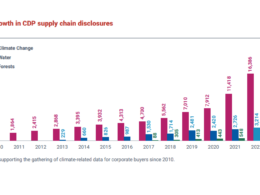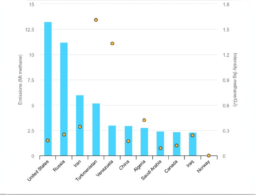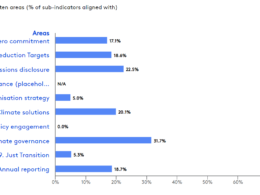The global economy is suffering annual losses of up to $25 trillion as industries such as agriculture, energy, and fishing fail to account for how their operations fuel interconnected crises in nature, climate, and human health, a landmark report by the Intergovernmental Science-Policy Platform on Biodiversity and Ecosystem Services (IPBES) reveals.
The IPBES, an authoritative global science body established by 94 countries, warns that addressing biodiversity loss, climate change, water scarcity, food insecurity, and health risks in isolation is compounding these crises and escalating economic costs.
“By treating these as individual problems, we are wasting money and duplicating efforts,” said Pam McElwee, a Rutgers University professor and co-author of the report. She emphasised that integrating policy responses across sectors could achieve significant cost savings.
The report, approved in Namibia after three years of work by 165 scientists, estimates that unaccounted costs from current business practices range between $10 trillion and $25 trillion annually—up to a quarter of global GDP. These costs stem from industries neglecting the wider damage caused by their operations.
For instance, unsustainable farming may boost short-term yields but often leads to water pollution from chemical runoff, which degrades ecosystems and increases human health burdens, such as waterborne diseases.
“The problem with our current system is that we don’t have a way to account for those trade-offs in decision-making,” McElwee said. “These costs are passed on—to insurance companies, marginalised populations, and ecosystems.”
The report calls for systemic approaches to treat the crises as interconnected, urging meaningful discussions about trade-offs in business and policy decisions.
The report highlights the urgency of action amid concerns over stalled progress in UN negotiations on biodiversity, desertification, plastics pollution, and climate change.
At the UN biodiversity summit in Cali in October, talks ended without a global funding strategy as negotiations broke down due to insufficient participation. Developing nations expressed frustration over inadequate financial support to meet commitments under the Kunming-Montreal Global Biodiversity Framework, which aims to halt nature loss by 2030.
Similarly, the UN desertification summit in Riyadh concluded without an agreement on a legally binding response to drought, a measure supported by poorer nations, including many in Africa.
The IPBES report warns that delaying action significantly increases costs. Inaction on climate change is projected to add $500 billion annually to future expenses, while the cost of addressing biodiversity loss doubles if left unaddressed for a decade.
Biodiversity is declining at a rate of 2–6% per decade, weakening ecosystems critical for food security and climate resilience. Furthermore, extreme weather events linked to climate change have caused 12,000 disasters over the past 50 years, resulting in $4.3 trillion in damages, with 90% of the impacts disproportionately affecting lower-income countries.
Governments currently spend $1.7 trillion annually on subsidies that incentivise environmentally harmful practices, such as fossil fuel production, overfishing, and unsustainable agriculture. These subsidies often exacerbate the very crises they aim to address.
“These public investments often enable harmful private sector activities,” McElwee noted. Redirecting these funds toward regenerative agriculture, sustainable forest ecosystems, and biodiversity-positive practices could significantly reduce these externalities.
The report also flags $5.3 trillion in annual private financial flows damaging biodiversity through deforestation, pollution-intensive industries, and resource overexploitation. It calls for increased transparency, green and blue bonds, and the removal of harmful subsidies to counter these impacts.
Despite the scale of the challenge, the report emphasises that effective solutions are already being implemented worldwide. Highlighting over 150 case studies, it demonstrates how integrated approaches can yield benefits across biodiversity, climate, water, health, and food systems.
“We don’t have to wait for technological breakthroughs,” McElwee said. “We have solutions in hand now.”
The report suggests that immediate action could unlock $10 trillion in business opportunities and create 395 million jobs globally by 2030.
A companion IPBES report identifies economic and political inequalities, particularly those rooted in colonial legacies, as major barriers to progress.
“One of the overarching challenges is the persistent relations of domination forged during colonial eras that continue to shape how society is organised,” said Karen O’Brien, co-chair of the Transformative Change report.
The reports underscore the urgent need for coordinated, inclusive action to safeguard biodiversity, address climate change, and stabilise the global economy.






















